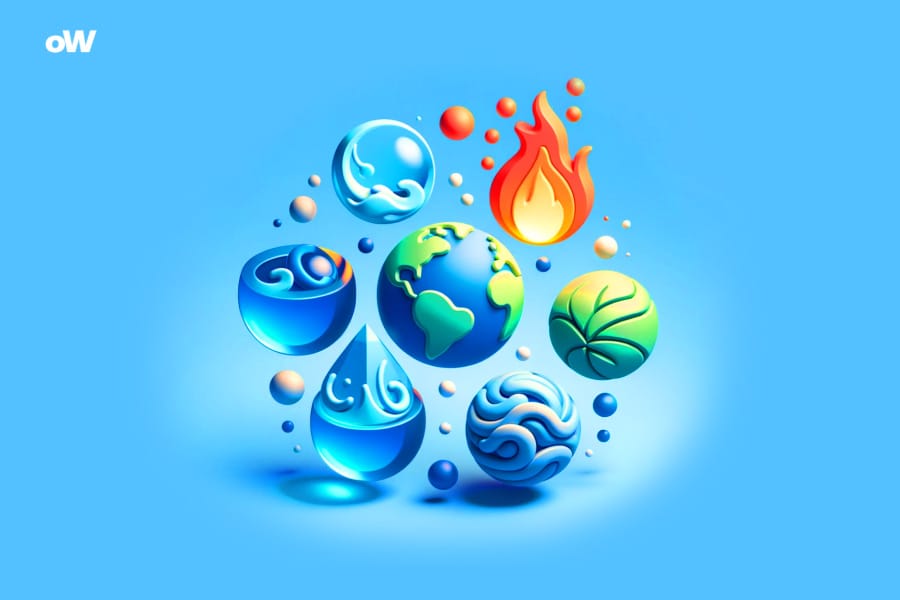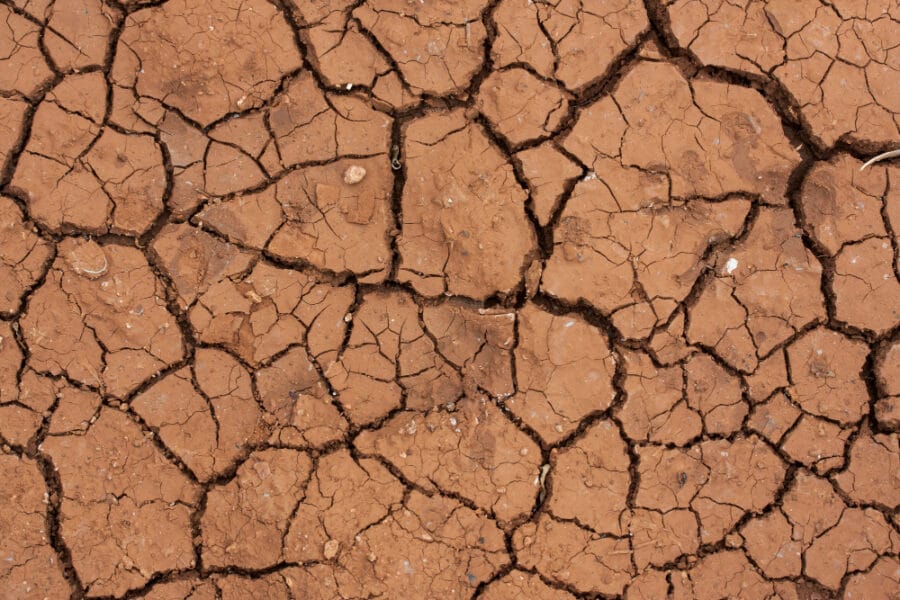Quiz: What Element Am I?

Have you ever felt that your personality is like a flame – bright, unpredictable, capable of igniting those around you? Or perhaps you’re more like a deep ocean with its mysteries and emotional depths? Ancient philosophers believed that each person carries the nature of one of the four elements: fire, water, earth, or air. This concept permeates many cultures – from Greek philosophy to Eastern teachings – and surprisingly, it remains relevant today. Our quiz “What Element Am I?” invites you on a fascinating journey of self-discovery, where you’ll uncover which primordial element of the universe manifests most vividly in your personality.
Why Do We Connect Ourselves with Elements?
The human desire to classify the world around us and understand ourselves through natural analogies has roots in ancient times. Hippocrates linked temperaments with natural elements, dividing people into cholerics (fire), sanguines (air), phlegmatics (water), and melancholics (earth). In Chinese philosophy, the elements (wu-xing) not only described human character but also served as the foundation for understanding all processes in nature and society.
The psychological connection with elements is explained by our evolutionary history. For thousands of years, humans observed the elements, depended on them, and learned to manage them. It’s no surprise that we intuitively identify ourselves with forces of nature that resonate with our inner qualities. When we say someone “ignites with ideas,” “has a solid character,” “is fluid and adaptable,” or “light-hearted,” we unconsciously use archetypal images of the elements.
Modern psychology recognizes the value of metaphorical thinking for self-knowledge. Carl Jung, exploring archetypes in the collective unconscious, discovered that elements are universal symbols that help structure our experience. Even neurobiology confirms that figurative thinking engages additional neural connections, making the process of self-analysis deeper and more effective.
How Can a Quiz Help Understand Your Personality Type?
In a world oversaturated with information and possibilities, finding your true “self” becomes an increasingly complex task. Quizzes and psychological tests offer a structured approach to self-discovery, acting as a kind of mirror in which we can see aspects of personality that remain unnoticed in everyday life.
The “What Element Am I?” quiz works on several levels. On a surface level, it offers an engaging exploration of your own preferences and reactions to various life situations. On a deeper level, the test activates mechanisms of self-analysis, stimulating reflection and mindfulness. When answering questions, you involuntarily think about your habits, values, and behavioral patterns.
The special value of this test lies in its metaphorical nature. Unlike strict psychometric tests, determining your element doesn’t attach labels or force you into rigid frameworks. Instead, you receive a flexible, intuitively understandable model for self-interpretation and development. The elements represent a spectrum of qualities, and each of us has all four elements present in different proportions.
The quiz results can become a starting point for deeper self-knowledge. Knowing your dominant element, you can better understand your natural strengths, recognize potential weaknesses, and find ways to harmonize different aspects of your personality.
Quiz Results and Their Meaning
Each element represents a unique combination of qualities that influence how we interact with the world, make decisions, and build relationships. Determining your dominant element opens the path to a deeper understanding of your nature and potential.
Fire
If your test result is fire, you belong to the most dynamic and energetic element. Fire people literally radiate enthusiasm and passion. They are born to be leaders, pioneers, and inspirers. Their natural charisma and self-confidence often make them the center of any company.
Key characteristics of fire people include: decisiveness, impulsiveness, creativity, competitive spirit, and untamed energy. They see life as a series of challenges and opportunities requiring immediate action. Slowness and routine are their main enemies, capable of literally “extinguishing” their inner flame.
The strengths of fiery people make them excellent entrepreneurs, managers, athletes, artists, and politicians. Among famous personalities with the dominant element of fire are Steve Jobs, Richard Branson, and Oprah Winfrey.
However, each element has its shadow. For fire, it’s a tendency to burn out, an inability for long-term planning, and a tendency to dominate others. To achieve harmony, fire people need to learn to control their energy, develop patience, and practice empathy.

Water
Water is the most emotional and intuitive of the elements. If the quiz identified you as a water person, you possess deep emotional wisdom and the ability to understand hidden motives and feelings of others. Like water itself, you know how to adapt to any circumstances, taking the shape of the container you’re placed in.
Water people are distinguished by empathy, intuition, attention to detail, flexibility, and capacity for deep emotional connections. They feel the world on a level inaccessible to other elements and often possess an almost mystical ability to foresee events and read people.
These qualities make them excellent psychologists, writers, musicians, diplomats, and healers. Among famous “water” personalities are Jung, Dostoevsky, Chopin, and Princess Diana.
The shadow side of water is a tendency toward emotional fluctuations, excessive sensitivity, and difficulties with establishing boundaries. For balance, water people should develop structured thinking, practice emotional self-regulation, and learn to protect their psychological space.

Earth
Earth is the most stable and reliable of all elements. If the test showed that you are an earth person, you embody qualities of solidity, consistency, and practicality. Earth people are the keepers of traditions, builders, and those who can always be relied upon.
The main characteristics of earth people include: thoroughness, patience, practical mindset, loyalty, and the ability to see things through. They prefer to act methodically and consistently, not recognizing superficial solutions and spontaneous changes.
Earth people excel in areas requiring stability and long-term planning: finance, construction, agriculture, engineering, teaching. Prominent representatives of the earth element include Warren Buffett, Queen Elizabeth II, and Mark Zuckerberg.
The weaknesses of earth can be stubbornness, resistance to change, and a tendency toward excessive materialism. For harmonious development, earth people are recommended to cultivate openness to new things, develop creative thinking, and learn to enjoy the process, not just the result.

Air
Air is the most intellectual and communicative element. If you belong to this element, your main tools for interacting with the world are mind, logic, and words. Air people possess a lively intellect, the ability to see the big picture, and connect seemingly incompatible ideas.
Characteristic traits of air people include: analytical mindset, curiosity, sociability, adaptability, and independence of thought. They love abstract concepts, intellectual discussions, and constantly seek new information and impressions.
These qualities make them ideal scientists, writers, journalists, programmers, and consultants. Among famous air element personalities are Albert Einstein, Stephen Hawking, and J.K. Rowling.
The shadow side of air manifests in detachment from reality, inconstancy, and difficulties with completing projects. To achieve balance, air people should develop practical skills, strengthen emotional connections, and learn not only to generate ideas but also to implement them.

Conclusion
The “What Element Am I?” quiz is not just entertainment but a powerful tool for self-knowledge, allowing you to better understand yourself and your place in the world. Determining your dominant element opens the door to a more conscious life where you can use your natural strengths and work on balancing weaknesses.
It’s important to remember that we all contain each of the four elements in different proportions. True wisdom lies not in limiting yourself to the framework of one element but in striving for harmonious interaction of all elements within us. As ancient masters said, “true mastery lies in balance.”
Take our quiz to discover your dominant element and begin an exciting journey toward a deeper understanding of yourself. The results might surprise you or confirm what you’ve intuitively always known about yourself. Either way, this knowledge will become another key to unlocking your unique potential.
Questions Overview
- I try to find a compromise and smooth out the rough edges
- I analyze the situation and look for a practical solution
- I propose new perspectives and alternative approaches
- I openly discuss the problem and defend my position
- Crystallization of minerals
- Formation of clouds
- Magmatic eruptions
- Formation of canyons by water
- Creating mental maps and diagrams
- Sequential structuring
- Intuitive immersion
- Quick grasp of the essence
- Deep blue of the ocean at sunset
- Emerald hue of the Northern Lights
- Terracotta color of canyons
- Golden amber in the sun
- I adapt, maintaining an inner core
- I meet them with enthusiasm
- I smoothly integrate them into my life
- I use them as a source of inspiration
- Spiral unwinding
- Uniform flow
- Pulsation
- Cyclical repetition
- Movement meditation
- Immersion in the creative process
- Contact with nature
- Deep relaxation
- Plasticity
- Thermal conductivity
- Density
- Volatility
- In transparent containers
- In special protective boxes
- In multifunctional organizers
- In soft cases
- Evaporation and condensation
- Melting and solidification
- Dissolution and crystallization
- Compression and grinding
- Through visual imagery
- Through emotional contact
- Through energetic exchange
- Through tactile interaction
- Cyclicality
- Irreversibility
- Fluidity
- Relativity
- Through experiments and trials
- Through observation and analysis
- Through immersion and experience
- Through gradual mastery
- Permeable membranes
- Distinct contours
- Blurred edges
- Pulsating barriers
- Through overcoming resistance
- Through seeking balance
- Through accumulating experience
- Through deep transformations






